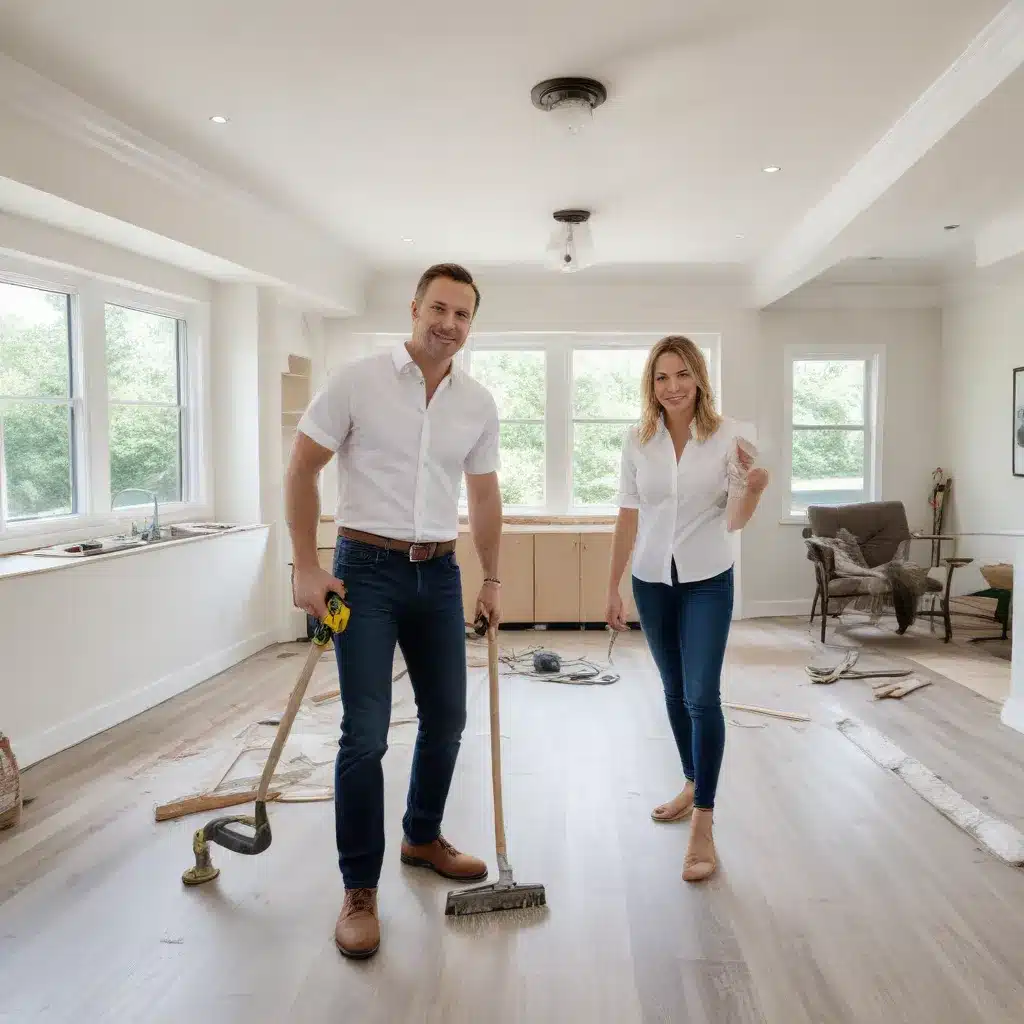Enhancing Home Resale Value Through Renovations: Strategies and Tips
As an experienced home improvement consultant, I’ve witnessed firsthand how strategic renovations can significantly boost a property’s resale value. Whether you’re planning to sell your home in the near future or simply want to enhance its long-term worth, understanding the impact of various renovation projects is crucial.
Renovation Impact on Home Resale Value
Renovating your home is not just about updating its appearance; it’s an investment in its future value and livability. Certain renovations can dramatically enhance both the aesthetic appeal and financial worth of your property. But not all projects offer the same return on investment (ROI).
Factors Influencing Resale Value
Several key factors influence how much value a renovation can add to your home:
– Location and Local Market Trends: The value of renovations can vary greatly depending on the local real estate market and buyer preferences in your area.
– Renovation Type and Scope: Major kitchen or bathroom remodels, for example, tend to have a higher ROI than purely cosmetic changes.
– Material and Finish Quality: Upgrading to durable, high-end materials like granite, quartz, or hardwood floors can significantly boost a home’s perceived value.
– Energy Efficiency and Smart Home Tech: Eco-friendly features and smart home integrations appeal to many modern buyers.
Renovation Priorities for Maximum ROI
When it comes to renovations that offer the best bang for your buck, certain projects stand out. According to the latest Remodeling Magazine’s Cost vs. Value Report, some of the top renovations for maximizing resale value include:
– Garage Door Replacement: This can recoup up to 100% of the project cost.
– Front Door Replacement: A steel or fiberglass entry door can return nearly 100% of the investment.
– Siding Replacement: Fiber-cement or vinyl siding can recoup 80-90% of the cost.
– Deck Addition: A well-designed wooden deck can offer an ROI of around 83%.
– Minor Kitchen Remodel: Modest kitchen updates like new countertops, cabinets, and appliances can return 72% of the investment.
Cost-Effective Renovation Strategies
While high-end renovations can be tempting, it’s important to find the right balance between the investment and the potential return. Consider these cost-effective strategies:
– Focus on Visible Improvements: Prioritize renovations that enhance your home’s curb appeal and first impressions, such as exterior siding, entry doors, or landscaping.
– Modernize Rather Than Overhaul: For kitchens and bathrooms, refacing cabinets, upgrading fixtures, and adding energy-efficient appliances can offer a strong ROI without a complete overhaul.
– Embrace DIY Projects: Simple tasks like interior painting, flooring refinishing, or light fixture updates can be done DIY to save on labor costs.
– Explore Financing Options: Leveraging home equity loans or lines of credit can help you fund larger renovations without depleting your savings.
Targeted Renovation Projects
Now, let’s dive deeper into some of the most impactful renovation projects that can significantly enhance your home’s resale value.
Kitchen Upgrades
The kitchen is often considered the heart of the home, and for many potential buyers, it’s a major focal point. A modern, functional kitchen can greatly influence a buyer’s decision and significantly boost home value.
Cabinet Refacing and Modernization: Refreshing your kitchen cabinets with new doors, drawers, and hardware can provide a fresh, updated look without the cost of a full replacement.
Countertop and Appliance Enhancements: Upgrading to durable, attractive countertops like granite or quartz and energy-efficient appliances can enhance both the aesthetic and functionality of your kitchen.
Layout Optimization for Flow: Improving the overall layout and workflow of your kitchen, such as adding an island or expanding the footprint, can make the space more appealing to buyers.
Bathroom Remodeling
A well-executed bathroom renovation not only enhances daily living but also offers a high return on investment. Consider the following strategies:
Bathroom Fixture Replacement: Updating faucets, showerheads, and lighting fixtures with modern, water-efficient options can breathe new life into the space.
Tiling and Lighting Improvements: Refreshing the tile work and upgrading lighting can dramatically improve the look and feel of the bathroom.
Space Expansion Considerations: If feasible, expanding the square footage of the bathroom or adding dual vanities can make the space feel more luxurious and functional.
Exterior Enhancements
Curb appeal plays a significant role in a home’s attractiveness to potential buyers. Focusing on strategic exterior renovations can significantly enhance your property’s value.
Curb Appeal Boosters
Landscaping and Hardscaping: Investing in well-designed landscaping, walkways, and outdoor living spaces can create a welcoming first impression.
Siding, Roof, and Window Updates: Replacing worn-out siding, updating the roof, and installing energy-efficient windows can dramatically improve your home’s exterior appearance and energy efficiency.
Energy-Efficient Upgrades
Insulation and Weatherproofing: Improving insulation and sealing air leaks can enhance your home’s energy performance and appeal to eco-conscious buyers.
Renewable Energy Integration: Incorporating solar panels or geothermal systems can not only reduce energy costs but also demonstrate your home’s commitment to sustainability.
Budgeting and Timeline Management
Effective renovation planning involves careful budgeting and timeline management to ensure a smooth and successful project.
Renovation Cost Estimation
Identifying Hidden Expenses: Beyond the obvious renovation costs, be mindful of potential hidden expenses, such as permits, unexpected structural issues, or waste disposal fees.
Financing Options and Considerations: Explore various financing options, including home equity loans, lines of credit, or personal savings, to determine the best fit for your project and budget.
Renovation Timeline Planning
Phased Approach Advantages: Consider a phased renovation approach, which can help you manage costs, minimize disruption to residents, and ensure a more organized project timeline.
Minimizing Disruption to Residents: Develop a clear communication plan and establish temporary living arrangements (if necessary) to make the renovation process as smooth as possible for your family.
Enhancing your home’s resale value through strategic renovations is a savvy investment in both your living experience and your financial future. By understanding the factors that drive resale value, prioritizing high-ROI projects, and implementing cost-effective strategies, you can transform your home into a more valuable and appealing asset. For more renovation insights and inspiration, be sure to visit Reluctant Renovator.




